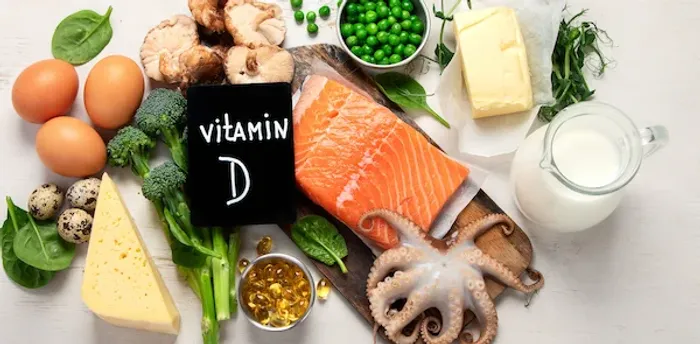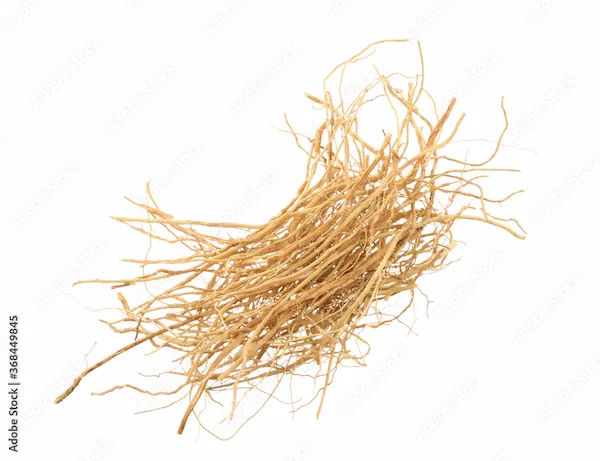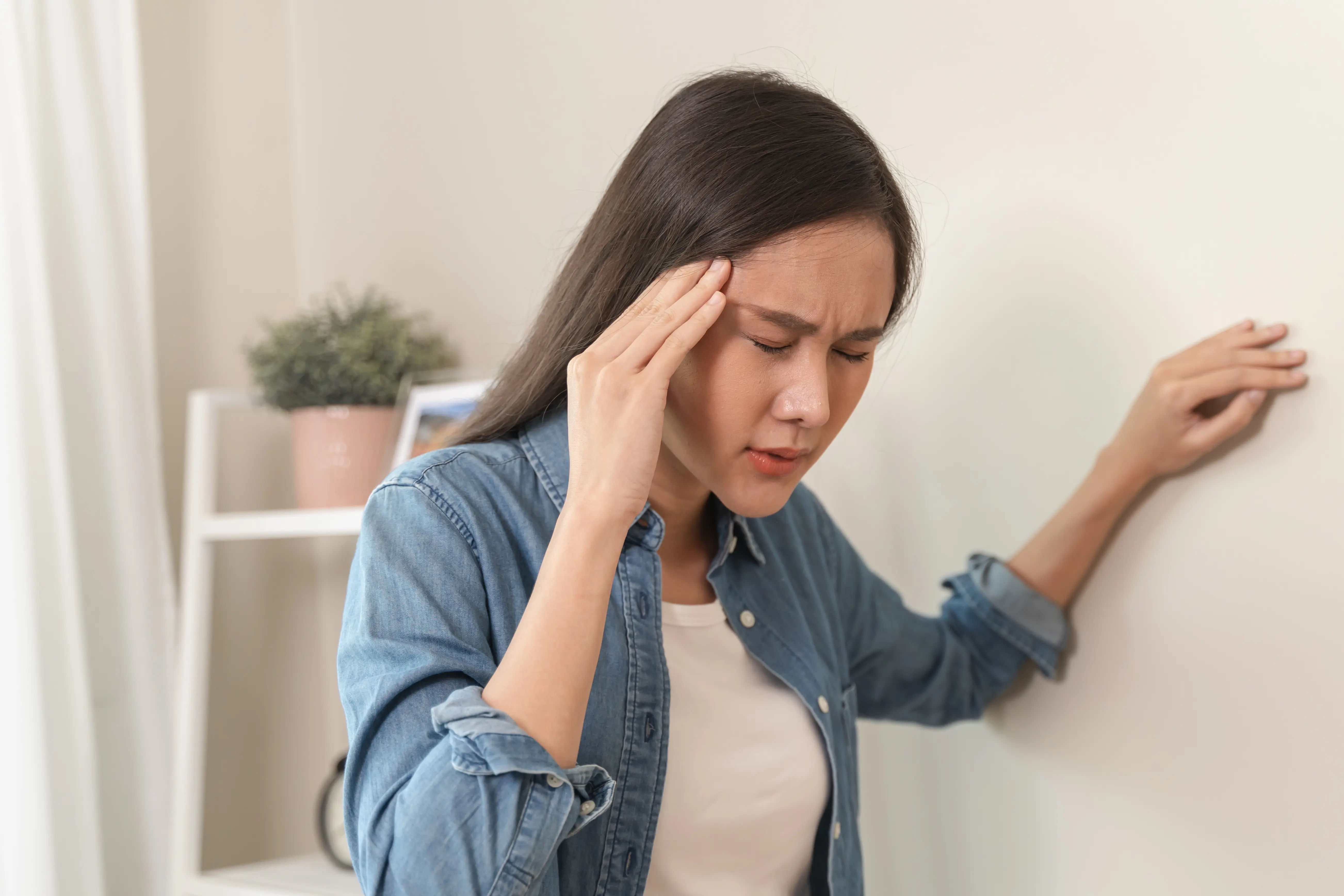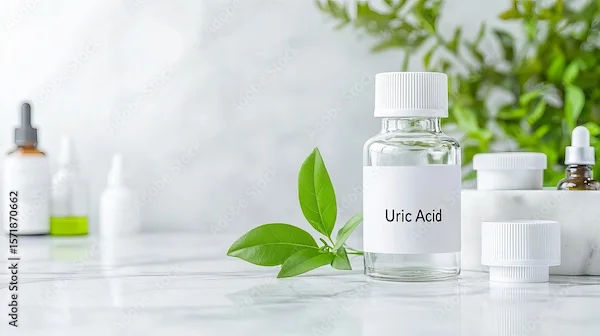Vitamin D Deficiency: Dietary Solutions
Know about the vitamin D deficiency, common symptoms, best food sources, lifestyle tips to improve absorption of vitamin D and time to consider supplements.

Written by Dr. J T Hema Pratima
Reviewed by Dr. Dhankecha Mayank Dineshbhai MBBS
Last updated on 3rd Aug, 2025

Introduction
Vitamin D is an essential nutrient that plays a crucial role in maintaining strong bones, supporting the immune system, and regulating mood. Unfortunately, many people suffer from vitamin D deficiency without even realizing it. The good news is that with the right dietary choices, you can boost your vitamin D levels naturally.
In this article, we’ll explore:
What is vitamin D deficiency is?
Common symptoms to watch for
The best food sources of vitamin D
Simple lifestyle changes to improve absorption
When to consider supplements?
Let’s dive in!
What is Vitamin D Deficiency?
Vitamin D deficiency occurs when your body doesn’t get enough of this vital nutrient. Unlike other vitamins, vitamin D functions like a hormone and is produced by your skin when exposed to sunlight. However, many factors—such as limited sun exposure, dark skin, age, and certain medical conditions—can lead to low levels.
Why is Vitamin D Important?
Bone Health: Helps absorb calcium, preventing weak bones (osteoporosis) and fractures.
Immune Support: Strengthens your body’s defence against infections.
Mood Regulation: Low levels are linked to depression and fatigue.
Muscle Function: Reduces the risk of muscle weakness and pain.
Signs You Might Have Vitamin D Deficiency
Many people with vitamin D deficiency don’t show obvious symptoms, but some common signs include:
Fatigue and tiredness
Bone pain or frequent fractures
Muscle weakness or cramps
Mood swings or depression
Slow wound healing
Hair loss (in some cases)
If you experience these symptoms, a simple blood test can confirm whether you have a deficiency.
Consult Top Specialists for Personalised Tips
Best Dietary Sources of Vitamin D
Since sunlight is the primary source of vitamin D, people who stay indoors often or live in less sunny regions may struggle to get enough. Fortunately, certain foods can help boost your intake.
1. Fatty Fish
Salmon, mackerel, sardines, and tuna are excellent sources.
Just 3 ounces of cooked salmon provides about 570 IU of vitamin D.
2. Egg Yolks
Eggs, especially the yolks, contain small amounts of vitamin D.
One large egg yolk gives about 40 IU.
3. Fortified Foods
Many foods are enriched with vitamin D, such as:
Milk (cow’s milk & plant-based alternatives like soy/almond milk)
Orange juice
Breakfast cereals
Yogurt
4. Mushrooms (If Exposed to Sunlight)
Some mushrooms (like shiitake and maitake) produce vitamin D when exposed to UV light.
100 grams of UV-exposed mushrooms can provide 400–500 IU.
5. Cod Liver Oil
A single teaspoon contains about 450 IU of vitamin D.
Lifestyle Tips to Improve Vitamin D Levels
1. Get Safe Sun Exposure
Spend 10–30 minutes in the sun (without sunscreen) 3–4 times a week.
Best time: Mid-morning or late afternoon (avoid peak UV hours).
2. Exercise Outdoors
Walking, jogging, or yoga in sunlight helps boost vitamin D naturally.
3. Maintain a Balanced Diet
Combine vitamin D-rich foods with healthy fats (like olive oil or nuts) for better absorption.
4. Consider Supplements (If Needed)
If dietary sources aren’t enough, your doctor may recommend vitamin D3 supplements.
Always consult a healthcare provider before starting supplements.
When to See a Doctor?
If you suspect a deficiency, a simple blood test (25-hydroxy vitamin D test) can check your levels. Based on the results, your doctor can suggest:
Dietary changes
Supplements (if severely deficient)
Regular monitoring
Final Thoughts
Vitamin D deficiency is common but manageable with the right diet and lifestyle changes. By including fatty fish, fortified foods, eggs, and safe sun exposure, you can maintain healthy levels. If symptoms persist, don’t hesitate to get tested and seek medical guidance.
Consult Top Nutritionists
Consult Top Specialists for Personalised Tips
Dr Sumanth R
General Physician
2 Years • MBBS
Bengaluru
PRESTIGE SHANTHINIKETAN - SOCIETY CLINIC, Bengaluru

Dr. Ramalinga Reddy
General Physician
5 Years • MBBS MD General medicine
Bengaluru
PRESTIGE SHANTHINIKETAN - SOCIETY CLINIC, Bengaluru

Dr. Bhukya Pavan Kalyan
General Physician
5 Years • MBBS DNB Paediatrics
Bengaluru
PRESTIGE SHANTHINIKETAN - SOCIETY CLINIC, Bengaluru
Dt. Ila Sharma
Clinical Nutritionist
18 Years • Master in food & Nutrition
Gurugram
VIPUL GREENS - SOCIETY CLINIC, Gurugram
Ms. Lakshmi Tejasvi
Clinical Nutritionist
14 Years • M.Sc - Clinical Nutrition
Hyderabad
Vibgyor Nutri, Hyderabad
Consult Top Nutritionists
Dr Sumanth R
General Physician
2 Years • MBBS
Bengaluru
PRESTIGE SHANTHINIKETAN - SOCIETY CLINIC, Bengaluru

Dr. Ramalinga Reddy
General Physician
5 Years • MBBS MD General medicine
Bengaluru
PRESTIGE SHANTHINIKETAN - SOCIETY CLINIC, Bengaluru

Dr. Bhukya Pavan Kalyan
General Physician
5 Years • MBBS DNB Paediatrics
Bengaluru
PRESTIGE SHANTHINIKETAN - SOCIETY CLINIC, Bengaluru
Dt. Ila Sharma
Clinical Nutritionist
18 Years • Master in food & Nutrition
Gurugram
VIPUL GREENS - SOCIETY CLINIC, Gurugram
Ms. Lakshmi Tejasvi
Clinical Nutritionist
14 Years • M.Sc - Clinical Nutrition
Hyderabad
Vibgyor Nutri, Hyderabad
.webp)



